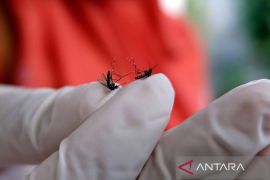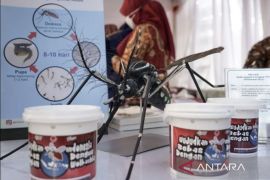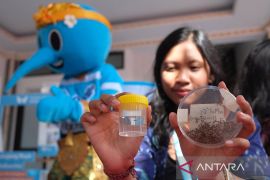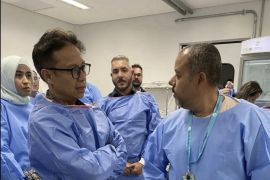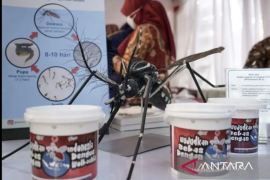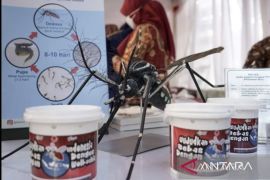"Wolbachia is a bacteria that can only survive inside the insects' bodies, including mosquitos. It cannot survive outside the insects' cells," she said in a statement released by the Communications and Public Services Bureau of the Indonesian Health Ministry on Sunday.
This was contained in her research project that she conducted together with a team of scientists from UGM's Faculty of Medicine, Public Health and Nursing and the World Mosquito Program (WMP) since 2011 to prove the effectiveness of Wolbachia bacteria in reducing dengue cases in Indonesia.
Utarini conveyed that Wolbachia and the mosquito as its host are not organisms resulting from genetic modification carried out in the laboratory because the genetics of the mosquito and Wolbachia bacteria used are identical to natural organisms.
"Wolbachia is not genetically engineered because it cannot replicate itself without the help of its host insect. This is a natural characteristic of the Wolbachia bacteria which has been found naturally in the body of the Aedes Albopictus mosquito as well," she continued.
She informed that Wolbachia is naturally found in more than 50 percent of insects and has the characteristics of being a symbiont or having no negative impact on its host.
"Moreover, a risk analysis carried out by 20 independent scientists in Indonesia concluded that the risk of adverse impacts on humans or the environment was negligible," she added.
The Health Ministry plans to implement Wolbachia technological innovation to reduce the spread of Dengue Hemorrhagic Fever (DHF) in Indonesia.
The applied Wolbachia technology is implemented by using a 'replacement' method, where male and female Wolbachia mosquitoes are released into natural populations.
The aim of applying the method is
enabling female mosquitoes to mate with local mosquitoes and, as a result, produce baby mosquitoes containing Wolbachia.
"Eventually, almost all mosquitoes in natural populations will have Wolbachia," she disclosed.
She conveyed that Wolbachia will play a role in blocking the replication of the dengue virus in the mosquito's body.
As a result, mosquitoes containing Wolbachia will not be able to transmit the dengue virus when the mosquito sucks human's blood.
Considering that Wolbachia is found in mosquito eggs, Utarini said that the bacteria will be passed on from one generation of mosquitoes to the next.
"As a result, the protective impact of Wolbachia against dengue transmission will be sustainable," she continued.
From the results of the trial, she remarked that this method has been proven to significantly reduce the incidence of dengue fever and hospitalization for dengue patients.
"This reduction will affect significant cost savings in dengue control for countries implementing the method," she noted.
Related news: BRIN initiates development of dengue vaccine in Indonesia
Related news: No new diseases from Wolbachia dengue control method: Health official
Translator: Andi Firdaus, Resinta Sulistiyandari
Editor: Rahmad Nasution
Copyright © ANTARA 2023

